Dhaka’s uninspiring govt primary schools
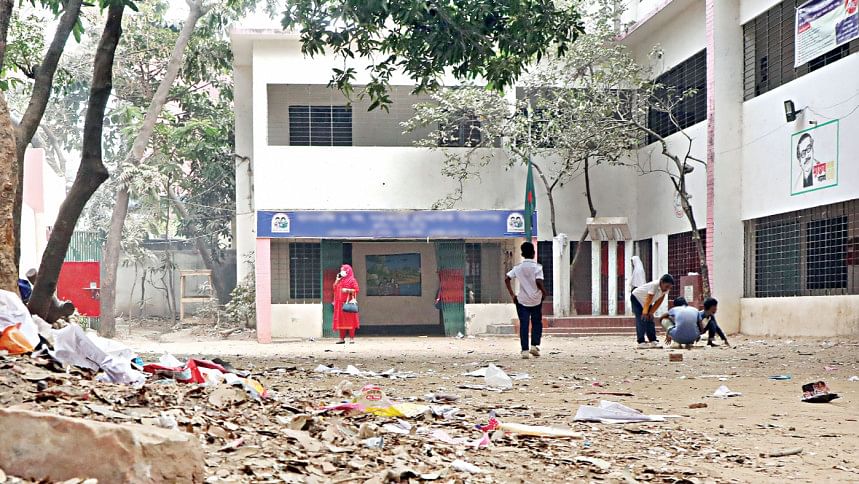
The government aims to build a "Smart Bangladesh" by 2041, but without fixing our faulty public education system, how far can it achieve this goal? The human resources for Bangladesh's future are being short-changed at the primary education level, finds The Daily Star through visits to several schools right in the heart of the capital.
Around 12:30am on a school day last week, when classrooms in most of the private schools in Dhanmondi were abuzz with lessons, the scenario at Dhanmondi-1 Government Primary School was starkly the opposite.
A teacher was busy sewing something in an almost-empty classroom of fifth-graders. Four students, apparently hungry and exhausted, were sleeping on a bench with books piled on it. A few of their peers were playing in the school playground.
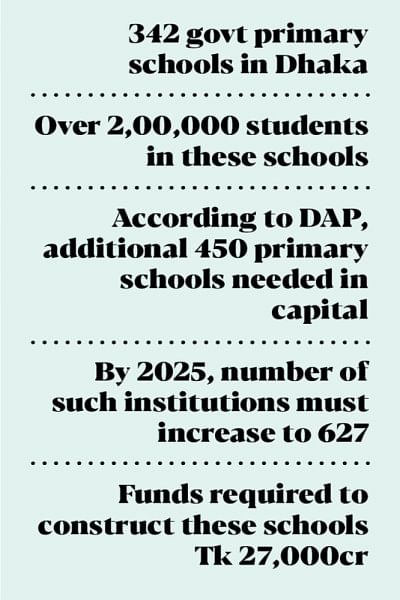
The classroom of the fourth grade had neither any teacher nor student. The teachers declared a day-off, as most of the students did not turn up that day, which, according to the school teachers, is quite common.
In 2019, govt allocated Tk 1,159cr to modernise 342 schools and construct 11 new primary schools in Dhaka in 2019 under Drishti-nandan Project Number of schools so far modernised, constructed under the project in Dhaka: 0
"Most of the students do not come to the school regularly. So, teachers have nothing to do, and spend the time doing their personal stuff," said a senior teacher of the school, preferring not to be named.
This is one of many age-old problems plaguing the 342 government-run primary schools in Dhaka, where more than 2,00,000 children are enrolled. All these schools offer free education, while many institutions are staffed by a sufficient number of well-trained teachers. But the quality of education leaves much to be desired.
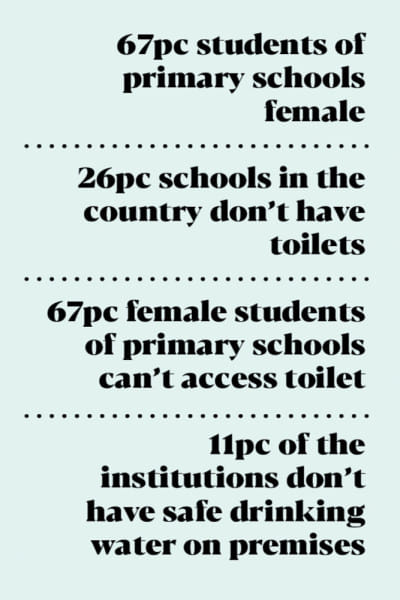
According to some guardians and teachers, most of these schools are fraught with numerous problems -- including the absence of a proper learning environment, long, tedious school hours, lack of safety, and poor infrastructure -- which has led to fewer children getting admitted. Currently, only the urban poor bother to get their children admitted to these institutions.
In contrast to the failing primary schools of Dhaka, in Delhi, primary schools are going through a remarkable transformation. Led by Aam Admi Party Chief Minister Arvind Kejriwal, schools are being revitalised under an innovative reform scheme.
Since 2015, the Indian authorities invested heavily and brought certain structural reforms to overhaul the government-school education system, which is accessed by the poorest of the poor, in a city of nearly two crore people.
The massive overhaul has brought about impressive results and is now attracting children from middle-class families, who want their wards to get the quality education these schools are offering.
Inspired by the initiative, the Bangladesh government took up a project named "Drishtinandan Prakalpa" in 2019, with the view to creating a modern and child-friendly learning environment in the state-run primary schools of the capital.
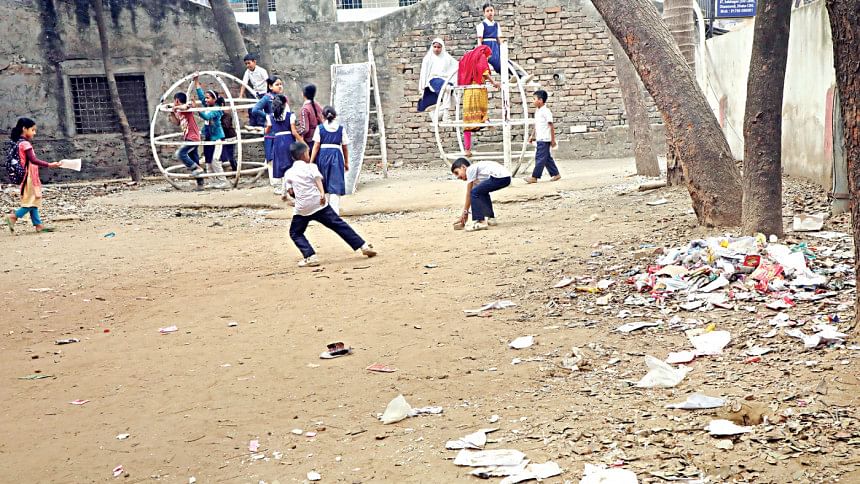
But the project is going nowhere, and the state of these schools remain unchanged.
THE SORRY STATE OF DHAKA'S PRIMARY SCHOOLS
Both teachers and parents have complained that both the infrastructure and environment in general are not conducive to learning in these schools.
This correspondent visited eight state-run primary schools in the capital and found their complaints to be true. Six of the schools were housed in different types of government offices and institutions; one was inside an evening law college.
A primary school in Gulshan houses an education office. The headmaster of the school complained that the officials of the office do not allow the school to arrange co-curricular activities in the school premises, as they "feel disturbed" by children playing.
"Visitors also frequent this office, and we cannot prohibit them from entering the premises during school hours, which is also a concern with regard to our children's safety," he said.
The Directorate of Primary Education (DPE) does not appoint any security guard or support staff for these institutions. Gates of the primary schools this correspondent visited were found open and unguarded.
Street vendors can freely enter the school premises and use school toilets without any permission. Local youths use the school playground to play cricket, football and just hang out, which makes the playground inaccessible to school students. Besides, the toilets are quite filthy.
According to the headteachers, every primary school receives an allowance of Tk 70,000 to Tk 100,000 per year, depending on the number of students, from the government's School Level Improvement Plan (SLIP) Fund. An institution bears the entire maintenance cost for a year with the money.
The principal of a school in Mirpur said, "I get Tk 85,000 for one year to run my school. With this money, we can just purchase some essential stationery, teaching aids, and arrange cultural activities. Recruiting a cleaner is out of the budget. We have no other alternative but to leave our schools unguarded and premises unclean."
"With such poor maintenance and funding, we cannot expect well-off families to send their kids to our schools," she commented.
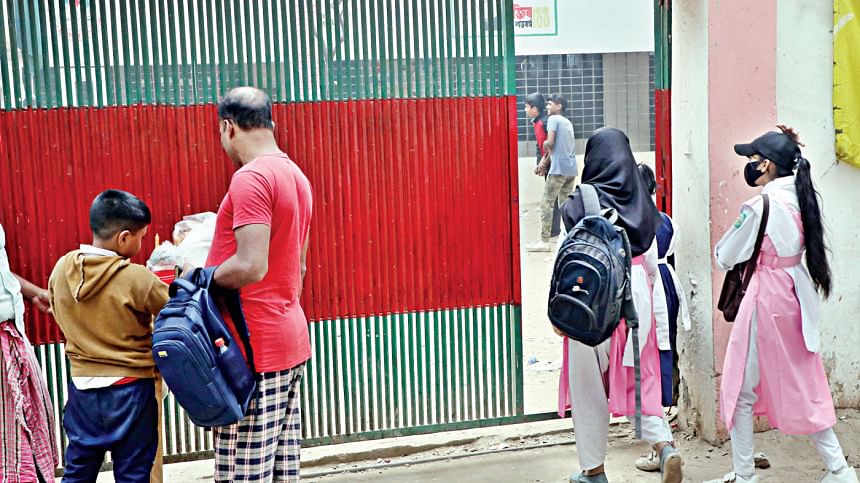
LONG, TEDIOUS SCHOOL HOURS
Teachers and parents identified long school hours as significantly affecting the learning environment of these schools.
The pre-primary section starts at 8:00am and ends at 11:00am. However, the school timing for the students of grade three, four, and five is from 9:00am to 3:00pm. The duration of each class is 50 minutes.
"All of our students come from poor families. Their parents cannot give them tiffin regularly. But we cannot run a canteen in our school premises. As a result, students get exhausted, especially after 12:00pm, and it becomes impossible to keep them attentive in the classroom," said a teacher of a primary school in Badda.
Mosammat Bilkis, a house-help working at different apartments of Kalabagan, said she is now thinking of taking out her two children from a government primary school in the neighbourhood.
"One of my kids studies in first grade and another in third. I go to work after dropping off my younger child to school at 8:00am. I have to pick him up from the school at 11:00am, and again go to school at 3:00pm to pick up my other son. It's too difficult," she said.
"I can't afford to come to school every day. So, I'm thinking of transferring my children to a single shift school," Bilkis added.
Teachers do not enrol their children in the very school they work at because of the poor educational environment and quality.
"We get children from families that are not aware of their children's academic achievements. The children do not get any academic care from their parents at home. Neither can they afford to hire private tutors. So, the kids' learning does not become sustainable, and they don't perform well in the exams," she said.
ANY LESSON LEARNT FROM DELHI SCHOOLS?
The Delhi government invested Rs 769 billion on its 1,037 schools. Modernisation of infrastructure, incorporating vocational and ICT skills into the curriculum, recruiting qualified, trained teachers, and forming school-managing committees are some of the major reforms recently brought about by the Kejriwal government.
But the Bangladesh government's "Drishtinandan Prakalpa" project made little to no impact.
Under the Tk 1,159-crore project, 342 schools of Dhaka city were supposed to go through major infrastructural reform, and teachers were to be given thorough training on vocational and ICT skills.
At least 11 new primary schools, three in Uttara and eight in Purbachal, were supposed to be constructed under this project.
The project deadline is 2025.
However, not a single school has been renovated or constructed yet, and promises of quality training for teachers and modern academic environment exist only on paper.
Project Director Mizanur Rahman said, "Yes, our progress is very slow. From 2019 to 2021, project directors have been changed several times, and all of them, including me, have to look after this project as an additional duty. As a result, my previous PDs could not pay much attention here."
Mizanur, who took charge last year, said he sped up the process of land acquisition and property valuation.
"We faced many challenges while getting land allotment for the new schools. We are assessing which schools need what type of renovation. However, we have to rely on LGED for all the engineering work, which is also one of the major reasons behind the delay. If we had a dedicated engineering cell, such delays could have been avoided," commented Mizanur, also a joint secretary of DPE.
"Once the project is completed, you will not hear about any such problem. All the schools under this project will be transformed to single-shift schools, so students and teachers will not have to spend a long time in the school anymore," he added.
However, he could not confirm when the project will end.
Experts suggest recruiting quality teachers and training them properly to improve the situation.
Mohammad Mojibur Rahman, associate professor of Institute of Education and Research at Dhaka University, emphasised on connecting the local community with the school.
"Like the schools in Delhi, we should engage school-management committees to manage funding for schools and to ensure accountability in the institutions. As schools here are run entirely by the government, and teachers are treated as government employees, accountability in institutional operation automatically decreases."
He said transparency in teacher recruitment and proper training have to be ensured.
"We have lengthened the school hours in primary schools, but our teachers do not know how to arrange different types of learning activities to best utilise the time. As a result, class times have become extremely boring."
"Pre-service and in-service training must be arranged for primary school teachers to make class time effective and enjoyable," Mojibur stated.

 For all latest news, follow The Daily Star's Google News channel.
For all latest news, follow The Daily Star's Google News channel. 


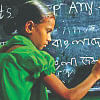
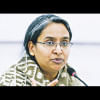
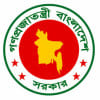
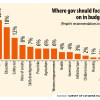


Comments